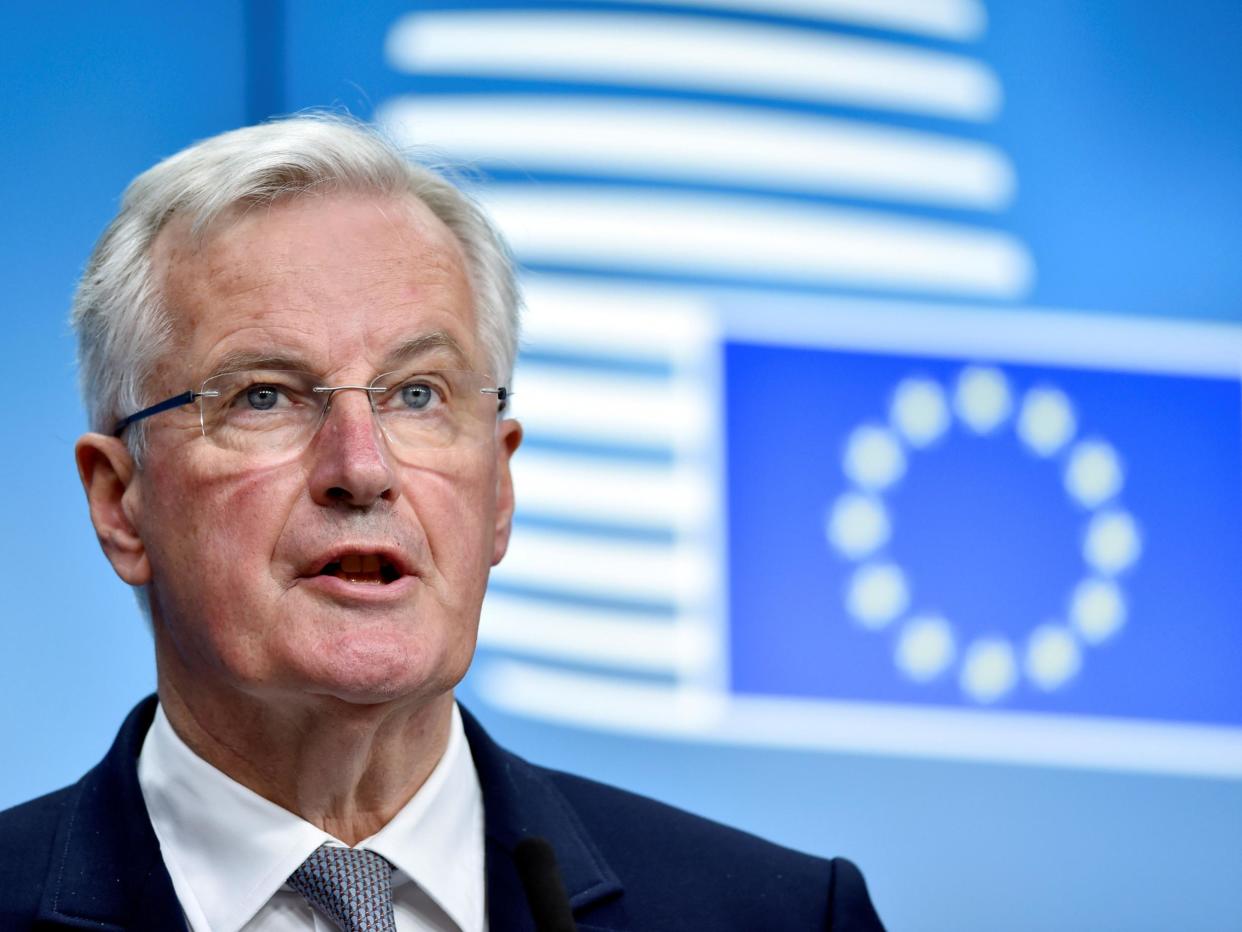EU's chief negotiator says 'we are ready' for Brexit talks

EU member states have agreed a plan for Brexit talks, which its chief negotiator says will commence “very quickly after the election”.
Michel Barnier said he would sit down for talks on 19 June, before briefing EU leaders later that week at a summit exactly a year after the June 23 Brexit vote.
“From the day the UK decided to leave, the EU had gone through an intense preparatory process,” Mr Barnier told journalists. “We are ready and well-prepared.”
He insisted Britain’s exit from the bloc would happen in an orderly fashion. Britain's Brexit Secretary David Davis said at the weekend that Prime Minister Theresa May's government was ready to walk out without a deal. But Mr Barnier told reporters: "That's not my option."
“I don't want to imagine ... a breakdown of negotiations. I would advise everyone to explain what the consequences would be of 'no deal',” he said.
The EU sets out its plan for the first phase of negotiations in an 18-page document. Many areas, such as trade agreements, are to be discussed at a later stage.
The document confirms the status of EU citizens in the UK is the bloc’s main priority, saying “the Brexit agreement must ensure “effective, enforceable, non-discriminatory and comprehensive guarantees” for EU nationals, The Guardian reported.
The negotiating directives prevent Mr Barnier from opening any talks on the free trade deal which Ms May wants until EU leaders decide “significant progress” has been made on a deal to settle key issues in the divorce — notably citizens' rights, British budget payments to the EU and the EU-UK land border on Ireland.
Only success in a first phase, which Mr Barnier hopes can be wrapped up by late this year, could establish mutual trust to open the second phase of talks on trade, he repeated on Monday.
The Government has said it will meet British obligations but has challenged the idea that that might mean paying tens of billions of euros to the EU to cover London's share of existing financial commitments. They want talks on a future trading relationship to begin immediately.
Some governments, notably from the ex-communist east which counts heavily on EU subsidies, have pressed hard to ensure Mr Barnier and his team seek maximum divorce payments from London.
“It's clear that in this matter, on the finance issue, if we get stuck then we will not get onto 'phase two', what comes afterwards between the European Union and Great Britain,” said Luxembourg Foreign Minister Jean Asselborn.
Germany's European Affairs Minister Michael Roth underlined the need to get started to contain the damage from what he called a “lose-lose situation” for Britain and the EU.
Reuters contributed to this report

 Yahoo News
Yahoo News 
